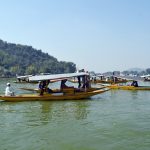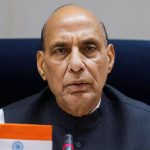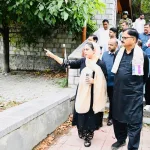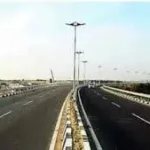Jammu and Kashmir has always defined and redefined tourism comprehensively. The reason being that this region has been blessed by nature with varied climate, topography and geography that makes it a natural brand in terms of tourism business and hospitality. The bounties of nature that shape the place consciousness and aesthetics of both Jammu and Kashmir regions besides the Ladakh that was part of the erstwhile state of Jammu and Kashmir before the political reorganisation due to neutralisation of Article 370 and 35 A have been marketers delight. The variance and diversity of climate and cultures enabled the tourism marketers to design tourism packages with uniqueness. Kashmir has caught the imagination of foreign travellers from the ancient times; who made it a point to visit the Paradise on Earth at least once in life. Jammu on the other hand emerged as the destination that surpassed the other places in terms of pilgrimage tourism, the reason being the pull factor of Shree Mata Vaishno Devi Ji in the Trikuta Hills. Ladakh created a niche for adventure tourism attracting the specialised circuit. Peace is an imperative for tourism. It allows the functioning of the tourism activity in tandem with allied sectors that support the business. Tourism economy sustains on the multiplier effect. Tourism is the peace economy that builds the scope for infrastructural development and superstructure. This year’s World Tourism Day addresses this international concern and in Jammu and Kashmir and it has an added significance as peace has been elusive for decades in this region of India. The theme for this year’s World Tourism Day is “Tourism and Peace”. This has been done aptly keeping in view the current global situation as the conflict and climate change is posing a serious challenge to tourism and the sustainable development it catalyses. Tourism is the integrality that develops in terms of peace, mutual understanding and friendship among the various nations. Tourism is the best mechanism to develop long term relations for providing livelihood and peace building. Jammu and Kashmir has an added importance for this theme as “Tourism and Peace” as building peace has been a challenging proposition due to the ethno –religious conflict. Peace has added premiums and the tourism economy is one of the main dividends of peace. Tourism policy makers have to internalise this premise in Jammu and Kashmir and develop strategies to adopt this theme by the World Tourism Organisation for the year 2024. Jammu and Kashmir is already celebrating the festival of democracy with the people ready to participate in the third phase of the Assembly Elections. It is incumbent upon the new political formation that will take over the reins of power once the results are declared that tourism has to be given its due place. The decades of conflict has relegated Jammu and Kashmir a bit laid back in the tourism sector. In spite of all the challenges the people in Kashmir have sustained the age old legacy of tourism and hospitality amid various constraints. Now the central government must give priority to segmentized tourism marketing that has specified procedures for both Jammu and Kashmir. Once these policies are put in place, it will enhance the tourism capacity building and enlarge the multiplier effect. New start-ups and entrepreneurs in tourism with new innovations have to be given space to contribute to Jammu and Kashmir’s economy.








